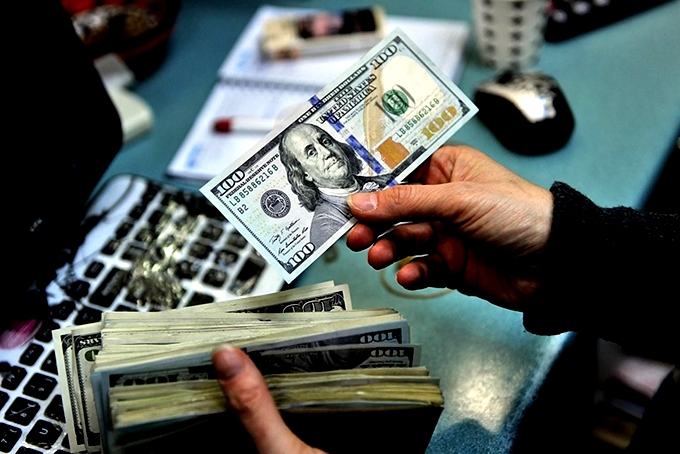De-dollarisation: Be careful what you wish for
There has been a lot of talk recently about de-dollarisation. However, you should be careful what you wish for.

There has been a lot of talk recently about de-dollarisation.
>> How will the US dollar move following the banking crisis?
Whether it is a fact right now, or a probability in the future, there does seem to be a degree to which many are willing this on; as if dollar hegemony is an evil that needs to be expunged if the world is to prosper. However, Mr. Steve Barrow, Head of Standard Bank G10 Strategy, said there would be a couple of reasons why de-dollarisation might not be the economic and financial nirvana that many might suppose.
With power comes responsibility. If a highly dollarised global economy confers power to the US, then it implies responsibility as well. As far as we can see, challengers to dollar dominance might not like the responsibility it confers even if they would like the power.
The first way to see this is by considering the opposite of what’s been called by economists, the dollar’s exorbitant privilege. The “privilege” that comes from having the world’s foremost currency is that the supplier (the US) can run larger trade deficits than other countries might be able without a run on its currency. This, plus other attributes seemingly make it tempting for others, such as China, to encourage the renminbi to come alongside, or even replace the dollar as the dominant currency.
However, we also need to focus on the opposite of this exorbitant privilege which has been termed an exorbitant duty. This takes place most notably when there are severe tensions in the world, such as a financial crisis or a pandemic. For in these episodes, the US dollar rallies aggressively. This in turn cuts the value of assets that the US holds externally while boosting the value of assets that foreign entities hold in the US.
In other words, there is an important transfer of wealth from the US to overseas that helps cushion the global economy against the crisis. A quick look at the US’s global debt position shows the rapid deterioration that comes largely from this effect.
>> The US dollar’s slide is about to start?
In Mr. Steve Barrow’s view, it is important that policymakers in the US allow this to happen. Just whether another country, or countries, that might seek to wrest the dominant currency position from the US will be prepared to allow such ‘losses’ remains questionable. With respect to China, there has been much consternation in many countries, led by the US, that China has not been as engaged as they would like to see on debt restructuring in a number of countries, particularly in Africa. This may be a hint that the currency flexibility required to make a dominant currency workable might be a step too far for some of those that might seek to challenge US dominance.
But there is also another aspect to this which is that liquidity has to be provided during crisis periods to ensure that strength in the dominant currency does not overwhelm others through, for instance, forcing aggressive monetary tightening on foreign central banks. The Fed, alongside other major central banks has an array of liquidity swap arrangements that can supply the dominant currency – the dollar – into the market when global financial strains emerge.
While it is true that China has set up many such swaps as well, these seem to be more about supplying renminbi for trade purposes than emergency liquidity. Of course, this may change in time but, for the moment at least, it does appear that China’s challenge to the US dollar is more in terms of the renminbi’s use as an invoicing currency for trade than a truly dominant global currency. That might not be a bad thing for with the power of a dominant currency also comes the responsibility and this can cut both ways.








